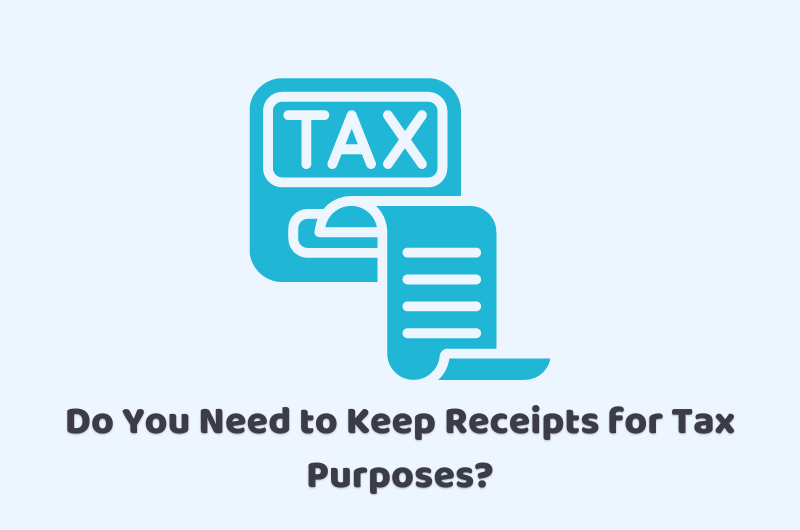
18/01/2023tax , Tax Issues , Tax Saving Tips
Receipts for taxes are usually easy and handy to manage in the case of small businesses. They tend to use them for tax purposes as well as personal uses. This practice is really helpful to keep track of the business expenses and income to make the right kind of business choices. Whenever you undergo an investigation from HMRC, the auditors can require such records at any time which you will have to provide them. Moreover, in the case of self-employed people, they also keep such receipts and records intact to be used at the time of tax returns. However, there are several people enquiring whether they need to keep the records for tax purposes.
Well, when you are on a business trip or in a business meeting with a client, the coffee you will buy, or the vehicle you will use, it is necessary to keep these receipts with you. Even the home desk you aim to buy for work-from-home services is important and you need the receipts to claim such expenses. It is quite possible to expense all the money spent on the business purpose. This post will help you to learn the facts about the basics of what kind of receipts are to be kept instance in the record, what is the thumb rule to keep receipts, what can I claim business expenses by using my receipts, and what will happen if I have lost my receipts.
Reach out to our smart and clever-minded guys to get an understanding of how to manage receipts for taxes queries answered quickly. We will help to understand your queries instantly.
What Kind of Receipts for Taxes Do I Need to Keep for the Record?
Whether the business receipts belong to sales or any other purpose of business, HMRC suggests keeping them all intact for your safe side. Some of the prominent examples to keep intact include expense receipts, personal income takings, the record of PAYE related to your staff, the statement of credit cards, records of VAT, bank statements, and invoices. If there is any other kind of receipt and you are in doubt about whether to discard it or to keep intact, just manage to keep it anyway. Most likely you will find it helpful somewhere in the future.
What is the Thumb Rule to Keep the Receipts?
You need to be aware of the fact that there are chances of investigation to be called out from HMRC for any particular year among the history of 20 tax years in the past. This is particularly because of the doubts of any tax year was spent in tax evasion or avoidance of tax. So whether you are currently going through the investigation or you are expecting to be investigated by HMRC, the best practice is to keep the records intact. As HMRC can investigate anything from the coast as mentioned earlier as well.
Moreover, in the case of sole traders, the thumb rule says to keep the record of the previous five years intact for keeping the safe side if any investigations are called out. This duration is suggested to be six years in the case of a limited company. The professionals recommend the best is not to throw anything away and keep records of everything. The experts often keep the records in a hard drive rather than having the cupboards full of paper piles which are hard to manage as well.
Can I Claim My Business Expenses with the Use of Receipts?
The business expenses are claimed normally without attaching the receipts. It is quite possible, however, HMRC can require any of such evidence if they are in doubt. This is the reason the professionals often recommend keeping a hold on the receipts. It becomes easier for you as well to keep the memory of the time and amount of money you have spent on a particular business expense. Even the business purchase you have made can be recorded in the form of receipts. In case of lost receipts, you can use the bank statements as a replacement for the evidence.
What will happen if I have Lost my Receipts?
In the case of losing the receipts, you don’t need to worry as there is a solution to nearly everything in the business. What will protect you from further trouble is to inform HMRC and bring this to their knowledge immediately. Before HMRC requires the evidence and receipts, you can make the move first and inform them about the lost receipts to avoid any awkward situations. However, for a solution or replacement, you can give them an estimate of the business expenses if your receipts are damaged or lost somewhere. This will be done while you are going through your self-assessment tax return. You can even take the support of your accountants to ensure that the estimated figures are not inaccurate.
The Bottom Line
Now that you have gathered a fair amount of information about how to manage receipts for taxes, we can bring the discussion towards wrapping up. It is important to keep the records of receipts intact because you can be called out for an investigation by HMRC at any given moment if they suspect that you are paying less than what you actually owe in the tax bills. This situation will not sound complicated if you have the records as proof of your tax payments. Otherwise, the circumstances can be more struggling for your business.
Our team of professional members loves to hear out your business problems and find out the possible and suitable solutions for how to manage receipts for tax quickly. Contact us now.
Disclaimer: The general information provided in this blog about how to manage receipts for tax in the UK includes text and graphics. It does not intend to disregard any of the professional advice in the future as well.
